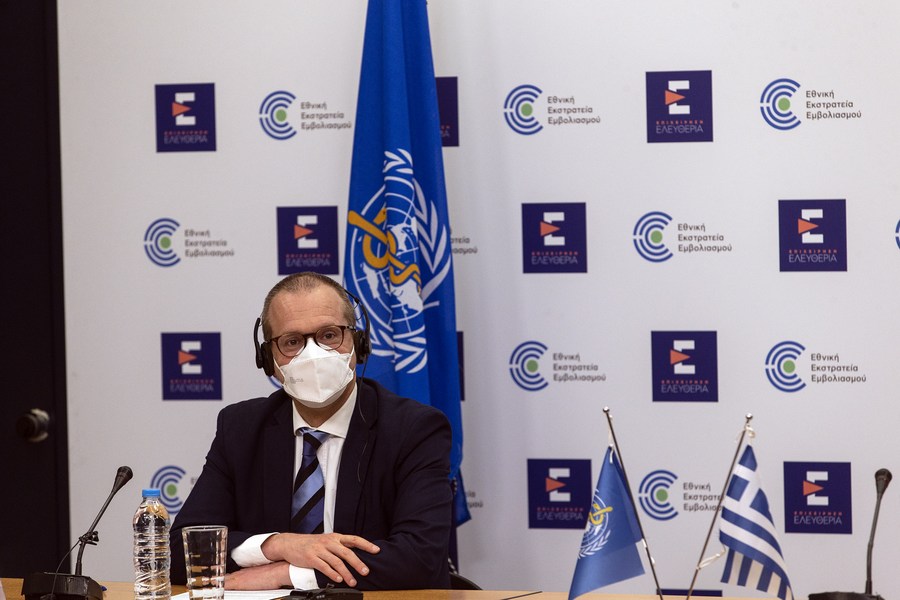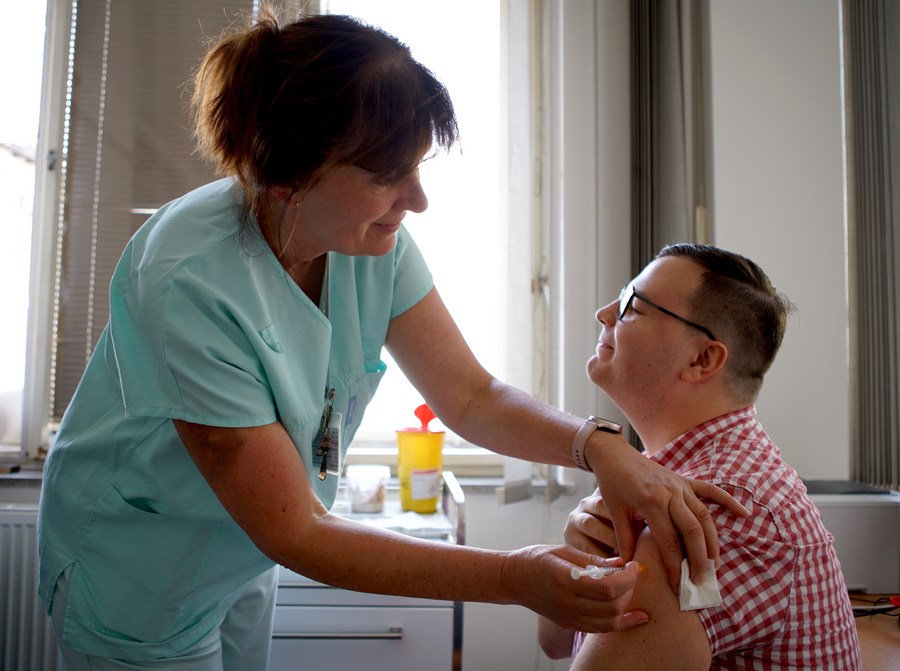WHO official urges science-based, non-discriminatory COVID entry restrictions

Chinese passengers arrive at the Suvarnabhumi Airport in Samut Prakan, Thailand, Jan. 9, 2022. (Xinhua/Rachen Sageamsak)
"Scientifically, there is no immediate threat for the European region at this point in time based on the information we have from China, because the (virus) variants that are circulating in China are also circulating in Europe," Kluge told Xinhua.
COPENHAGEN, Jan. 10 (Xinhua) -- A senior official of the World Health Organization (WHO) has urged countries to take science-based precautionary COVID-19 entry restrictions that are proportionate and non-discriminatory.
Hans Kluge, WHO's regional director for Europe, made the appeal at a press conference here on Tuesday.
"For those countries in our region introducing precautionary travel measures at this time, we are calling for such to be rooted in science, to be proportionate and non-discriminatory," Kluge said.

World Health Organization (WHO) Regional Director for Europe Hans Kluge attends a joint press conference in Athens, Greece, on April 15, 2021. (Xinhua/Marios Lolos)
"Scientifically, there is no immediate threat for the European region at this point in time based on the information we have from China, because the (virus) variants that are circulating in China are also circulating in Europe," Kluge told Xinhua.
"We share the current view of the European Centre for Disease Control (ECDC) that the ongoing surge in China is not anticipated to significantly impact the COVID-19 epidemiological situation in the WHO European Region at this time," he said.
Kluge reiterated the importance of scientific surveillance and criticized certain countries in the region for having significantly reduced their surveillance capacity for COVID-19 detection.

A nurse administers a dose of the COVID-19 vaccine to a man in Prague, Czech Republic, on July 18, 2022. (Photo by Dana Kesnerova/Xinhua)
According to Kluge, it might be risky to ignore other significant aspects of the evolution of the virus, such as the Omicron XBB.1.5 recombinant variant, which has rapidly spread throughout the United States and is currently expanding in the European region.
Kluge called on countries to take on even more responsibility, including increasing vaccine uptake in general populations, providing additional vaccine doses to priority groups, promoting mask-wearing both indoors and on public transportation, ventilating crowded and public spaces, and providing early and appropriate treatment to patients at risk of severe diseases.
Photos
Related Stories
- China opposes discriminatory entry restrictions: spokesperson
- Beijing shifting to new modes of COVID control
- China's COVID response policies are science-based, effective: FM
- Opportunities for international investors grow as China optimizes its pandemic control measures: foreign entrepreneurs
- Chinese medical experts on key COVID-19 concerns through FAQs
- United front eases COVID-19 stress
Copyright © 2023 People's Daily Online. All Rights Reserved.









